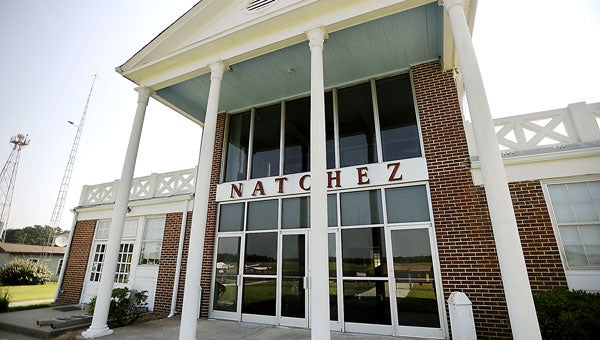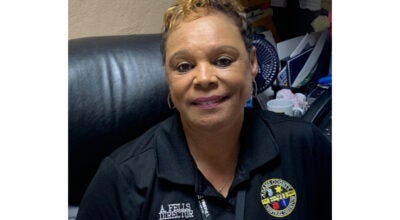County rejects settlement made by NRMC’s unsecured creditors
Published 12:11 am Tuesday, August 26, 2014
NATCHEZ — The Adams County Board of Supervisors rejected Monday an offer of settlement made by the committee representing Natchez Regional Medical Center’s unsecured creditors in the county-owned hospital’s bankruptcy.
The proposal was discussed in executive session because the supervisors did not want to jeopardize the county’s legal strategy, board attorney Scott Slover said.
The unsecured creditor’s committee represents those entities whose claims in the bankruptcy aren’t secured with physical collateral or a lien against the hospital.
The plan, which would include who gets paid how much and when they are paid, is still in negotiation and includes factors such as when the sale of the hospital to Community Health Systems can close, Slover said.
“The plan is that we want the sale to close at the end of September because we feel that is in the best interest of the facility and the community,” he said.
“The board has authorized myself and (the county’s bankruptcy attorney) Jack Lazarus to work with a committee to formulate a plan, and that plan takes the bank, the unsecured creditors and the county.”
The bank in reference is United Mississippi Bank.
Slover said the matter between the unsecured creditors and the hospital could be taken up today at a hearing in federal court in Jackson to discuss the hospital’s disclosure statement filed earlier this month.
NRMC’s attorney, Walter Brown, said the unsecured creditors were negotiating into the evening Monday.
“Hopefully, between (Monday night) and 1:30 p.m. (today), we will get that done,” Brown said. “If we can’t agree, we will ask the court to approve the plan, and the unsecured creditors can continue to file objections and show up at the confirmation hearing and protest then.”
In a court filing Monday, Kristina Johnson — the attorney representing UMB, which has provided post-bankruptcy financing for the hospital — objected to NRMC’s disclosure statement and proposed plan of action for paying its debts.
Johnson said the disclosure statement has insufficient information for creditors to make an informed decision about the plan.
A filing on behalf of the unsecured creditor’s committee filed by attorneys David Wheeler and Douglas Draper voiced similar concerns, and said the hospital’s financial information has been unreliable in the past.
“The disclosure statement fails to point out that the debtor has had a pattern over the last couple of months of discovering that its projected financial information is materially inaccurate,” the filing reads.
“Although the debtor has greater confidence — as of Aug. 22, 2014 — in its newly prepared financial information, creditors need to be advised of this pattern and the potential for discovery of further inaccuracies.”
The UMB filing expresses similar concerns.
“The disclosure statement relies on inaccurate financial projections and fails to reveal the general lack of reliability of financial data provided to interested parties in this case and the significant risk of further inaccuracies,” Johnson wrote.
Brown said having financial statements that have not always been borne out has “made it understandably difficult from a credibility standpoint,” but the hospital has gone back, gotten complete information and gotten an accurate picture.
“We originally had a plan to close this in June or July, but since that time, when (NRMC was) losing money monthly, it is hard to develop a plan because those numbers keep changing every month,” he said. “We have a hill to climb, but we are going to get there.”
Slover said the objections by the creditors were not unexpected, and he believed the parties could work through them.
The attorney representing the unsecured creditors, Slate Dabney, could not be reached for comment Monday afternoon.
Following the supervisors meeting, the supervisors also expressed concern about the hospital’s amended statement of financial affairs, which was filed Monday.
The filing includes a 28-page list of checks the hospital wrote from Dec. 30, 2013, to March 25 the day before the bankruptcy filing.
Included in that list is a $123,272.44 check to the Walter Brown Law Firm on March 24.
Brown said the payment represented several months of work for which he hadn’t been paid.
“We were rushing into this (bankruptcy), and so quite frankly, I didn’t bill every month because I didn’t have time and secondly because I knew the hospital was having financial problems,” he said.
The payment was made when it was because someone who is a creditor cannot represent the debtor in a bankruptcy, he said.
“For better or for worse, the others who were involved in it felt that my participation was critical from a number of standpoints,” Brown said.
“I have sort of been the central point down here from the standpoint of handling the legal part at the local level and the state level as well, so for that reason I could have said I just want to be a creditor. I felt like I wanted to finish it and should finish it, and I am still trying.”
Two checks, one for $41,236.50 and the second for $54,387.54, were drafted to Healthcare Management Partners — the firm hired to sell the hospital — on March 21, but were voided.





